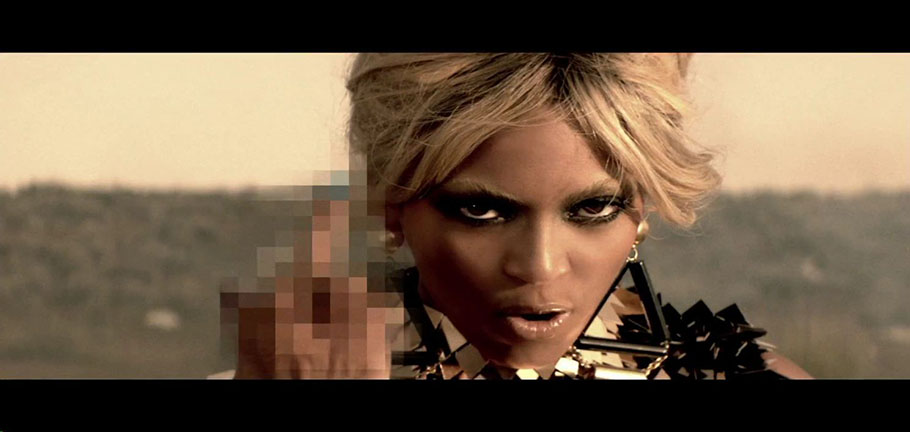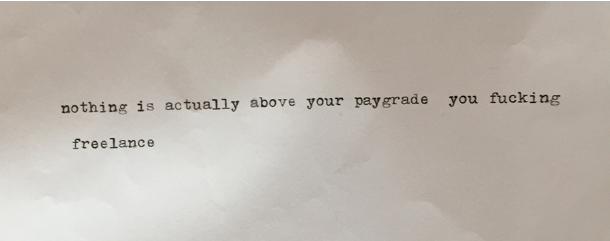Like Beyoncé Said, Fuck You, Pay Me
#Superscript15 blogger Samantha Wisneski looks into the issues of fair pay, "exposure," and digital arts publishing through the lens of a local arts writer trying to make a living.

Superscript’s “Sustainability, Growth, and Ethics” panel left me questioning who unpaid writing benefits and who it silences.
Susannah Schouweiler opened the post-panel discussion with a reference to Yasmin Nair’s piece “Scabs: Academics and Others Who Write for Free” in which Nair argues:
“The system of free writing has created a caste system, with those who can afford to work for free doing so while those who can’t struggling to pay the bills and often giving up. As with unpaid interns, those who can afford to write for nothing inevitably make it into networks of influence which allow them to continue on to actual paying gigs.”
Superscript panelists were unanimously ambivalent to Nair’s critique. I suppose it’s easy to breeze over the question of unpaid labor when you’re established in your career.
Others have paid a fair amount of attention to Nair’s writing, including myself, as Minnesota ranks fifth in the nation for student loan debt, at an average of $30,894 per student. As a recent graduate of the University of St. Thomas I know this well. Strapped with debt and unable to lean on family for financial support, I often think of how the economic realities of many graduates preclude them from even considering unpaid work. Working for free leaves many of us feeling anxious, pissed off, and exploited. This troubling and unsustainable model cannot cultivate a diverse and vibrant next generation of writers and cultural critics.

Paid opportunities for emerging art and culture writers in the Twin Cities are few and far between. Here as in other cities there seems a vicious cycle of taking an unpaid internship, busting your ass between multiple part-time gigs, all in hopes of making connections that will get you paying work in the future. But what is one supposed to do in the interim? Exposure doesn’t pay bills or student loan debt, and rarely can we monetize click-throughs or Facebook likes. I find it peculiar that millennials are often painted as a selfish, entitled, and narcissistic generation yet (Girls certainly doesn’t help our case) when so many of us graduate with stifling debt. But then we’re entitled and unreasonable brats when we ask to get paid? We have to continue advocating on our own behalf rather than begrudgingly accepting unpaid labor as the new normal.
During the panel, Los Angeles Times writer Carolina Miranda talked about her experience interning full-time at The Nation during the ‘90s. Paid $75 a week, Miranda supported herself by “stuffing cannolis like nobody’s business.” Although she wasn’t suggesting everyone take this approach, Nair urges one to recognize how stories like this, in the wrong context, undermine efforts to set a new precedent for paying writers. “It’s not their free writing and ‘exposure’ that got them their jobs; it’s their ability to survive without having to depend on writing for a livelihood that guaranteed they could continue to write for nothing.”
I’m left, then, with the questions: who are unpaid gigs really for? And what does that tell us about the future of criticism?
Related information: Superscript: Arts Journalism and Criticism in a Digital Age is a three-day conference, copresented by Walker Art Center and Mn Artists (May 28–30, 2015). Here’s a list of all the ways you can participate in the conversations and events surrounding Superscript (whether you attend in person or not).